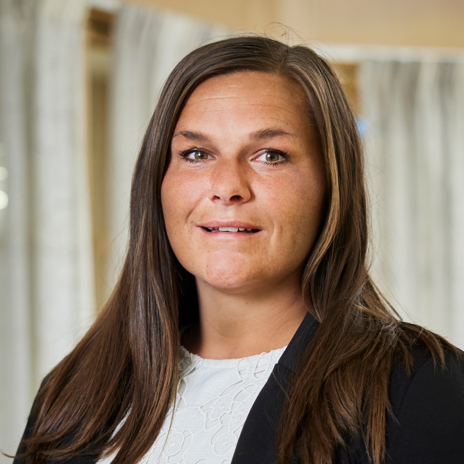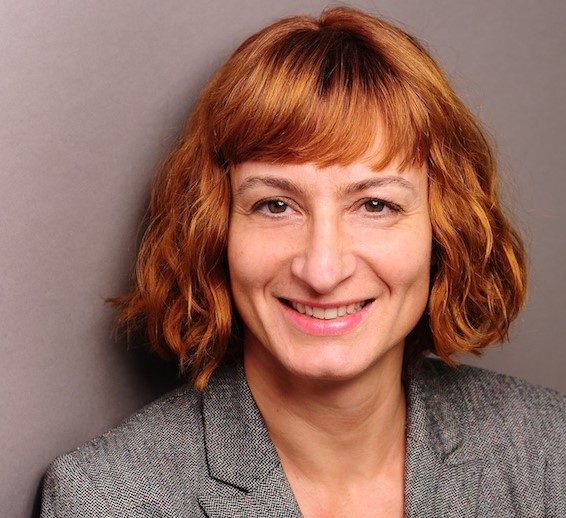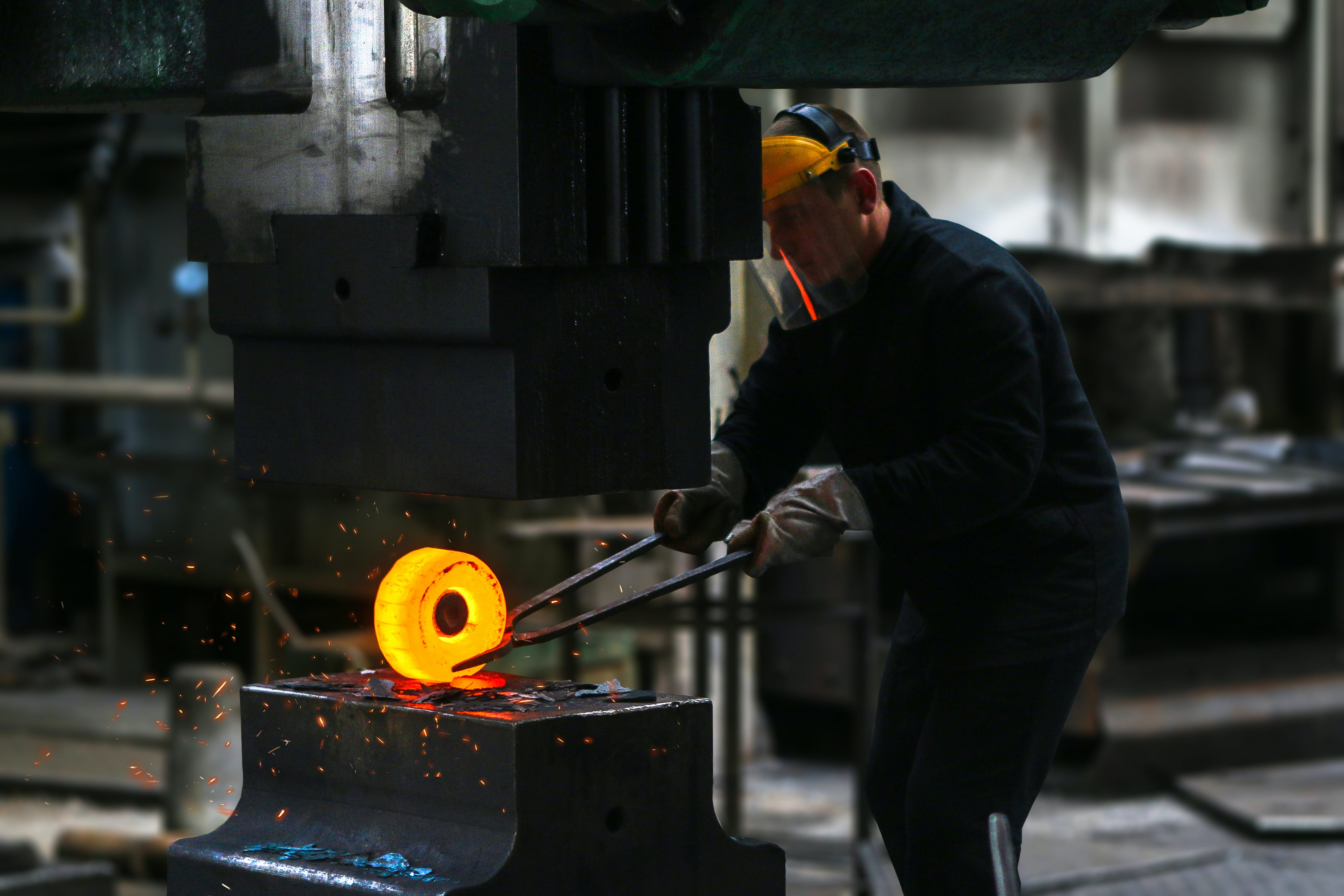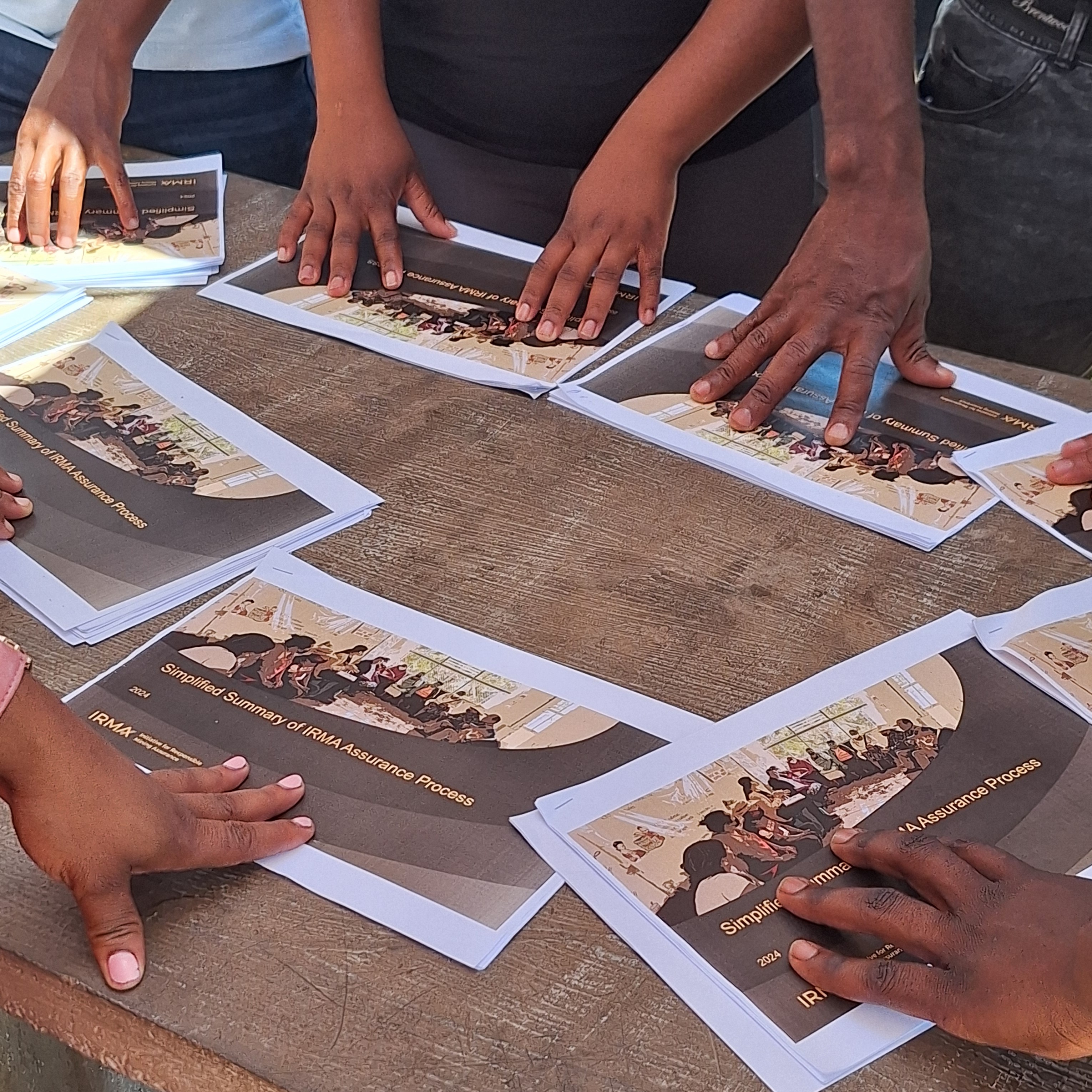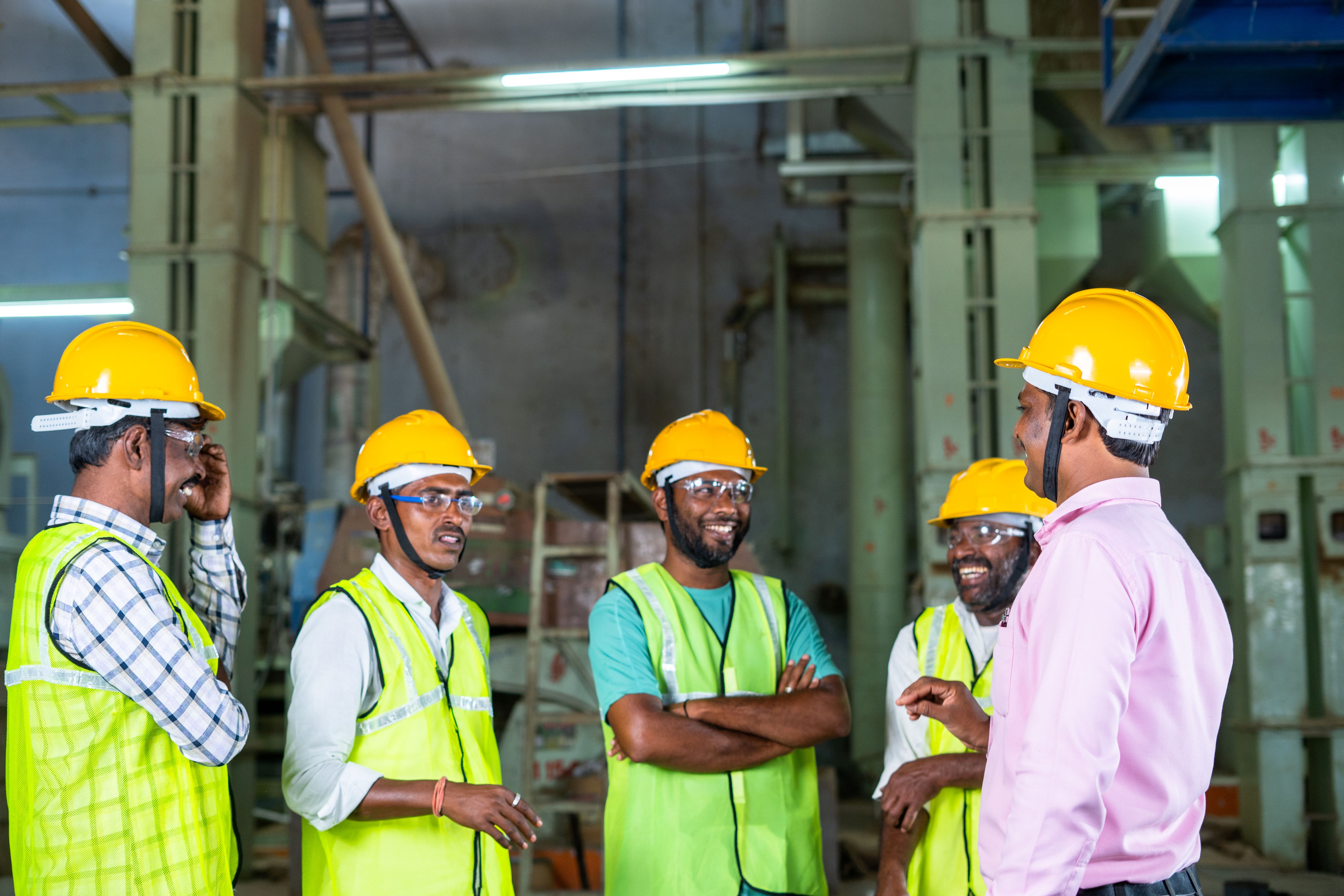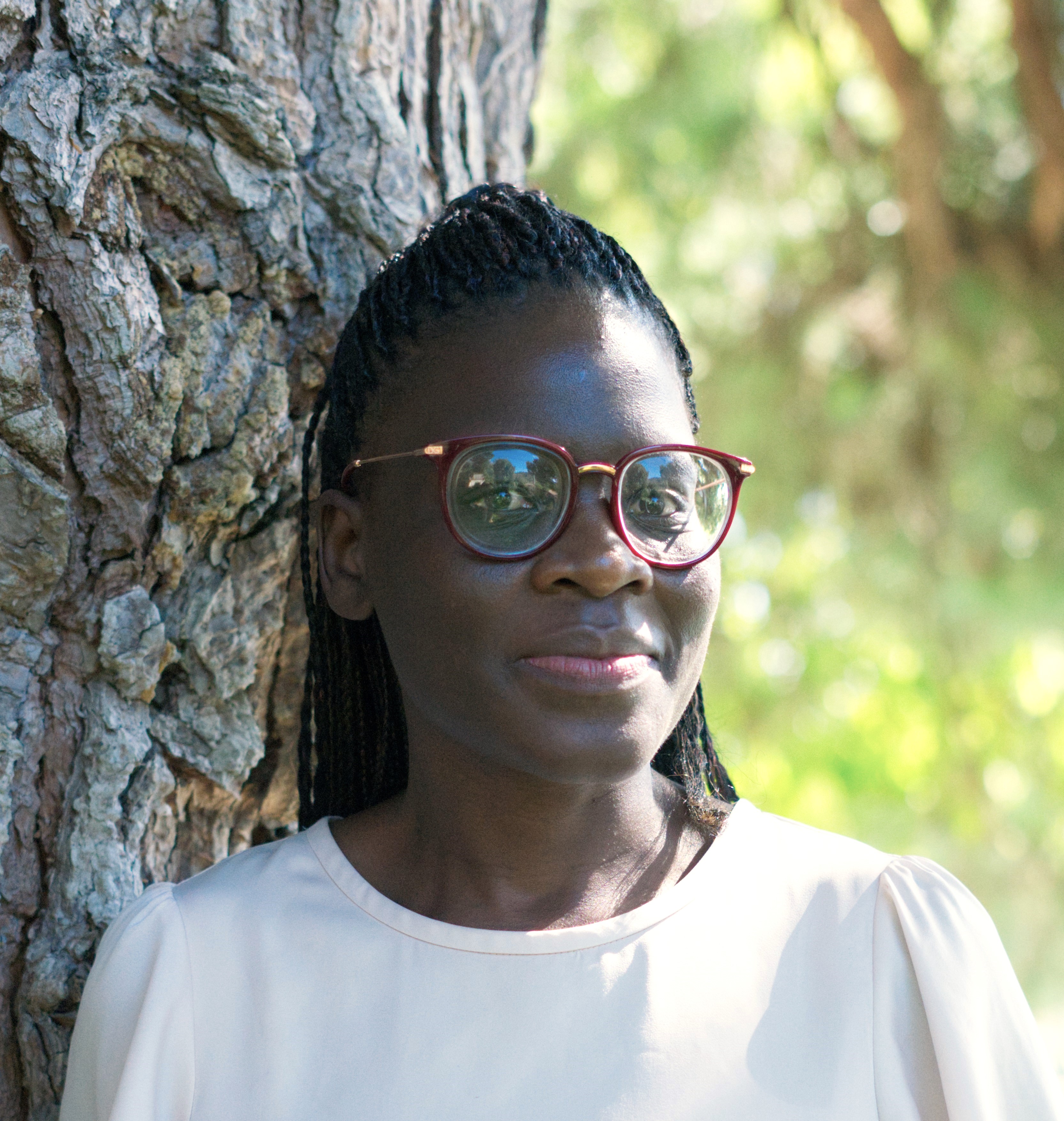

Auditor training dates announced
The next ResponsibleSteel auditor training will take place from 03 to 06 May 2021. It will take place online from 09:00 CET to 13:00 CET each day.
Participation in a training is one of the prerequisites for becoming a ResponsibleSteel-approved auditor. Only auditors that are affiliated with a certification body who is an Associate Member of ResponsibleSteel and has been approved by ResponsibleSteel may carry out audits against the ResponsibleSteel Standard.
Auditors who want to register for this online training should:
- Review the auditor approval and qualification requirements in the ResponsibleSteel Assurance Manual to see if they meet our requirements (1.5 and Annex 3)
- Complete the auditor application form in the Annex of the Assurance Manual (Annex 2)
- Send the completed application form, a full and up to date CV and all the mentioned documentation to mbammert (at) responsiblesteel.org by 15 April
Prior to the training, participants must have studied the ResponsibleSteel Standard and Assurance Manual.
The training participation fee is 300 USD per auditor. All the documentation listed above can be accessed here.
Note that our trainings are also open to employees of steel companies who are ResponsibleSteel members. Steel company participation is covered by their ResponsibleSteel membership fee. No documentation is needed, but steel company representatives have to confirm their participation to ResponsibleSteel by email.


CSR Europe Joins ResponsibleSteel
CSR Europe, on the behalf of Drive Sustainability, has joined ResponsibleSteel as Associate Member.
CSR Europe is the leading European business network for Corporate Sustainability and Responsibility and facilitator of Drive Sustainability, the partnership of 11 leading automotive companies. Together, they have the vision to lead the shift towards a more circular and sustainable automotive value chain by leveraging a common voice and engage with suppliers, stakeholders, and other sectors. As steel is one of the most relevant materials for the products in the automotive sector, joining forces with Responsible Steel represents a milestone in Drive Sustainability’s approach.
“Drive Sustainability, representing some of the major global car producers with a collaborative agenda towards a circular and sustainable automotive supply chain will be a great asset in helping ResponsibleSteel and our members to develop applicable approaches and tools” said Ali Lucas, Executive Director of ResponsibleSteel. “We are delighted to welcome CSR Europe as an Associate member and benefiting from their insight and experience”, continued Ali Lucas.
Stefan Crets, Executive Director at CSR Europe, said: “Steel plays a very important role when it comes to reducing carbon emissions in the supply chain or striving towards circular production and sustainable business models. ResponsibleSteel, as a standard and certification initiative has an important role to play within this context. A sustainable steel supply chain is crucial for the companies involved in Drive Sustainability, as it contributes to reach the strategic ambitions of the partnership from a social and environmental perspective. CSR Europe is looking forward working with ResponsibleSteel to help the ecosystem of the steel supply chain, especially producers and their upstream supply network, to move towards more responsibly sourced and produced steel.”
ABOUT CSR EUROPE
CSR Europe is the leading European business network for Corporate Sustainability and Responsibility. With our corporate members, National Partner Organisations (NPOs), and Associated Partners, we unite, inspire & support over 10,000 enterprises at local, European, and global level. We support businesses & industry sectors in their transformation and collaboration towards practical solutions and sustainable growth. We are for systemic change. Following the SDGs, we want to co-build with the European leaders and stakeholders an overarching strategy for a Sustainable Europe 2030.


PeoplePlanetProfit become an Associate member of ResponsibleSteel
PeoplePlanetProfit (PPP) is a small company from Germany providing consulting services and software solutions to clients worldwide. PPP has specialized in all areas of sustainability. The principles of sustainability are the foundations of what this concept represents. Therefore, sustainability is made up of three pillars: economy, society, and the environment. These principles are also informally used as profit, people and planet, hence the name of the company.
PPP offers services in the areas of environment, energy, CSR, CCF, LCA, but also compliance. All services are supplemented by innovative cloud systems, which PPP develops exclusively itself. For example, PPP offers a BI system for all CSR key figures. IT security comes first, which is also important for the customers.
PPP has now carried out several projects in the Aluminum sector related to Aluminium Stewardship Initiative (ASI) and employs two people who are Registered Specialists since 2017.
A holistic approach (environment, social and governance) is important to PPP, but PPP has a keen eye on details, too. A long-term and successful cooperation with our customers has top priority.
Patrick Wortner, CEO of PeoplePlanetProfit said: “At PPP, we believe that progress is always possible and in people who pursue it in a responsible way. We support changemakers – people and companies that ignite, lead and advocate for a sustainable change in the world. We are therefore looking forward to a successful cooperation as a member of ResponsibleSteel.”
“ResponsibleSteel warmly welcomes PeoplePlanetProfit as an Associate member.” Said Ali Lucas, Executive Director – ResponsibleSteel. “The whole digital arena for the industry is one of critical importance, and it is hugely exciting to have an organisation as part of our membership who has such a wealth of relevant knowledge and expertise in this area.”


SRI Quality System Registrar joins ResponsibleSteel™ as a new Associate Member
SRI Quality System Registrar, an international assessment body headquartered in Pittsburgh, PA, with services accredited by ANAB, RvA, IATF, AA1000, GBCI and IWBI, assesses and assists in conformance to quality, environmental, health and safety, social responsibility, information security, green building rating systems, and other international standards.
SRI was founded in 1991 as Steel Related Industries Quality System Registrar, a part of the Steel Industry Supplier Audit Program (SISAP). SRI quickly became an industry leader and one of the world’s largest registrars to metals and materials companies. Over the last 30 years, SRI participated in writing standards and introduced the value of third-party assurance to many industries. SRI’s roots remain in quality and sustainability within the steel industry.
Steel companies are major suppliers to, and customers of, other leading industrial sectors. As a committed member of the global supply chain, SRI offers metal and materials clients the assessment services they need to improve, compete, and succeed responsibly in the marketplace today. This includes a dedicated sustainability practice focusing on CSR/ESG performance.
“Part of SRI’s own evolution has been to update its sustainability goals to better reflect the business market of today and the future. Working to achieve goals such as Net-Zero by 2030 and joining ResponsibleSteel, allows SRI to learn, share, and help advance sustainability in the steel industry and beyond,” remarks SRI President, Christopher Lake. “We hope to contribute by lending three decades of sustainability and assessment expertise in our collaboration with ResponsibleSteel and stakeholders from every part of the steel supply chain, as we all work towards advancing steel’s contribution to a sustainable society.”
“ResponsibleSteel is excited to welcome SRI as an Associate member.” said Ali Lucas, Executive Director – ResponsibleSteel. “SRI’s deep knowledge and expertise in the field of international standards will be a powerful addition to many of the projects and programmes that ResponsibleSteel is currently developing and working on, and we are really looking forward to sharing ideas, knowledge and experience over the coming months and years.”


Bioregional has joined ResponsibleSteel as its newest Civil Society Member
Bioregional has been a leader in driving the transition towards more sustainable homes and communities, businesses and lifestyles for over 25 years. This is put into practice through the One Planet Living framework, which was created from experiences of planning and working with partners to develop the multi-award-winning BedZED, the UK’s first large-scale eco-village in South London.
High sustainability standards in materials has been embedded in Bioregional’s wide portfolio of projects. BedZED’s construction made use of a range of locally sourced and recycled materials. Bioregional also co-wrote the sustainability strategy for the London 2012 Olympics, which saw ambitious targets met for recycling and re-use of demolition materials, and extensive repurposing of steel structures.
As a long-time partner of Kingfisher, Europe’s largest home improvement retailer, Bioregional has provided consultancy and action plans to help Kingfisher improve the sustainability of its range of products and materials. This has been through setting standards across the product range, as part of Kingfisher’s Sustainable Home Products guidelines, as well as more concentrated efforts in areas such as cement and compost. In 2020, Bioregional was appointed by the UN Environment Program to develop a supplement on sustainable building materials, as part of its Eco-Innovation toolkit for SMEs. Bioregional aims to draw on these experiences of assessing impacts of building materials, helping to develop alternatives, and engaging the supply chain as a Civil Society member of Responsible Steel.
Stewart Muir, Sustainable Products Project Manager said: “We are delighted to have the opportunity to contribute to the efforts of Responsible Steel in setting improved sustainability standards for steel. We see this as a valuable platform for encouraging real action by our partners and clients to drive forward decarbonisation of steel and help address a range of sustainability challenges, as well as tackling the climate emergency.”
“We are absolutely delighted to welcome Bioregional as a civil society member. “ said Ali Lucas, Executive Director, ResponsibleSteel. “ Bioregional has a long and impressive track record in working across many projects, issues and sectors in the sustainability field, and I know that ResponsibleSteel, and our other members will benefit greatly from their deep knowledge and expertise.”


ResponsibleSteel in 2020
2020 marks a year of growth for ResponsibleSteel
At the end of 2020 ResponsibleSteel Members came together virtually to celebrate the immense growth and progress the organisation has made in the last year.
Despite an uncertain year our membership has grown by 30%. Since June we have welcomed 13 new members: Tata Steel, Cobalt Institute, Hyundai Steel, Bilecik demir çelik, Bio Regional, ERM, Grimshaw Global, Hatch UK, People Planet Profit UG, Russian Green Building Council, SRI Quality Systems, The Australian Supply Chain Sustainability School and The Energy and Resources Institute (TERI).
Excitingly, membership continues to strengthen globally – with new members from Asia, Australia, the Americas, and Europe.
Since June, ResponsibleSteel’s small team has been committed to delivering our core business of Standards, Assurance and Oversight for our Certification Programme. In 2020 we held our first audits against the ResponsibleSteel Standard and we have approved four certification bodies. Alongside this we have approved 20 auditors and held training for a similar number.
During our Members Meeting, we were delighted to be joined by Mr T.V. Narendran, Managing Director of Tata Steel. In a keynote speech, Mr Narendran gave an excellent and passionate overview of how steel industry and Tata Steel are engaging in the sustainable steel debate.
Mr Narendran commented, “I think it’s increasingly important for this industry to keep engaging with stakeholders, not only in the value chain but also outside of the value chain.”
He went on to say, “We, as an industry, need to reach out to many stakeholders. Which is where a multi-stakeholder platform like ResponsibleSteel plays a role and I expect for this reason we will be able to have a more objective discussion. Tata Steel felt like ResponsibleSteel is a good platform for us to be part of as we are constantly looking to improve the way we work and to be more responsible.”
Watch Mr Narendran’s speech here
After his remarks Gerry Tidd, Responsible Steel’s co-chair for business unofficially awarded Mr Narendran quote of the day: “If complexity excites you, this is the industry to be in.”
An even bigger year on the horizon
In 2021, ResponsibleSteel will build on these great foundations as we scale up operations. In March we will welcome our first CEO Anne-Claire Howard to help us drive the organisation forward into our next stage of growth.
Alongside this we will scale up our proactive membership drive focusing on steelmakers, producers and civil society. We will be deliberate about raising our profile via external communications and stakeholder engagement.
New projects
Internally, our team are focused on the delivery of new projects to expand our offering. One of the most exciting projects on the horizon is SteelZero; launched in early December in partnership with The Climate Group, SteelZero is a global initiative to bring together leading organisations to speed up the transition to a net zero steel industry.
Companies who join SteelZero make a public commitment to transition to 100% Net Zero Steel by 2050 at the latest. Collectively members show a demand signal to steel makers and producers in the move towards producing responsible zero carbon steel.
Watch the SteelZero video here
Next year we will be working with the Climate Group to grow the membership of SteelZero and build working groups from multiple sectors to demonstrate the wide market demand. We would love as many RsponsibleSteel members to join us as possible.
The Secretariat team and the Board at ResponsibleSteel thank our members for their commitment, engagement and support during a challenging year. We are now gearing up for another exciting year of growth and collaboration and look forward to working with members new and old.
From everyone here at ResponsibleSteel, have a great holiday period and we look forward to seeing you all next year!


DNV GL becomes an approved ResponsibleSteel certification body
We are delighted to announce that our fourth audit firm DNV GL has recently joined AFNOR Certification, ERM CVS and GUTcert as an approved certification body.
“We are delighted to be recognised as a key partner in the journey towards a more responsible steel industry by becoming approved by ResponsibleSteel™ to certify steel makers globally. As a purpose driven organisation, deeply committed to SDG 13 climate action, we are proud to contribute to reducing the climate impacts of one of the world’s most fundamental industries,” says Paul McNellis, Head of Assessment and Advisory in DNV GL-Business Assurance.
While Alison Lucas, Executive Director of ResponsibleSteel says “DNV GL was one of the first organisations to join ResponsibleSteel™ as an associate member and has provided much needed technical support to ResponsibleSteel™ during our early set-up phase. We are very pleased that they remain committed to our Vision and Mission and have now become approved as a ResponsibleSteel™ certification body”.
With our first audits due to be completed within the next 6 months and an uptick in membership in 2020, there will be a need for organisations such as DNV GL to help ResponsibleSteel meet its goals. To find out more about their ResponsibleSteel business offerings please click here.
Only auditors that are affiliated with a certification body who is an Associate Member of ResponsibleSteel and has been approved by ResponsibleSteel may carry out audits against the ResponsibleSteel Standard.
If you would like to know more about how your organisation can join our four current certification bodies please get in contact with us.


Hyundai Steel joins ResponsibleSteel
Steel producer Hyundai Steel has joined ResponsibleSteel as its newest Business Member, based in South Korea Hyundai Steel is a major player in the steel industry.
“ResponsibleSteel is delighted to welcome Hyundai Steel into membership. Having such a major international business join us from the steel making sector is a huge step forward towards us strengthening our depth and global reach within our membership. We very much look forward to working with Hyundai Steel as they work towards their aim to become a ‘sustainable steel company’ said Ali Lucas, Executive Director – ResponsibleSteel.
“Hyundai Steel is the first Korean company to join ResponsibleSteel and actively respond to ESG issues by establishing a network with global advanced companies,” a company spokesman said.
Hyundai Steel is expected to establish a leading position in terms of strengthening its own ESG management while securing confidence in the ESG field from the market and society through joining. The spokesman added, “As ESG plays an important role in the business environment, it is time to internalize ESG’s requirements through a mid- to long-term sustainable management strategy.”


ResponsibleSteel™ welcomes Green Building Council Russia (GBC Russia) as an Associate Member
Green Building Council Russia (GBC Russia) was formed at the end of 2008, followed by a founding event which resulted in the official registration of the Council as an independent non-government and non-profit partnership. It’s first members joined at the end of 2009.
The founding members of the organization set out with the following goals in mind:
- To promote the awareness for Green building within the community of professionals in the industry, as well as in adjacent economic sectors and among the public.
- To act as a catalyst in the transformation of the Russian construction sector towards sustainable development and circularity.
- Development of the Russian Green Building standard.
GBC Russia has since been accepted as a first stage member of the World Green Building Council. In 2020 GBC Russia is aiming to intensify its collaboration with the World GBC and become a worthy addition to the network of professionals for the benefit of the shared common cause – to transform the building and construction sector.
The Council has successfully brought together companies, organisations and individuals from Russia’s vast construction-related industries on the basis of a voluntary association of its members. Since its foundation, GBC Russia has received over 500 applications for membership both domestic and international. It is an established and well-recognized brand in the field of green building and sustainable development in Russia and abroad.
Members of the GBC Russia include companies from all parts of the construction supply chain, including architects, building services engineers, facility managers, civil engineers, university professors and academia, green investors, developers, contractors, sustainability consultants and auditors, construction materials manufacturers, product and service providers, suppliers, legal professionals, green community influencers, industrial journalists, non-profit institutions and government bodies.
“At GBC Russia, we feel that joining efforts with organizations that share the same values and whose goals are in alignment with ours is the key to bringing much needed change. The decision to join ResponsibleSteel supports our founding principles and will, no doubt, benefit both our organizations, as Russia is a country with several of the largest metal manufacturers in the world and has a vast market for steel and metal alloys. We are happy to become a part of the initiative! We salute our partners and look forward to doing great things together in years to come!” said Andrey Mokhov – the Chair of the Board.
“We are really delighted to warmly welcome Green Building Council Russia as an Associate member.” said Ali Lucas, Executive Director ResponsibleSteel. “We recognize the huge reputation that the World Green Building Council has globally, and having the Russian office as a member will be hugely beneficial in helping us, and our existing members learn more about the steel industry, and how that relates to the construction sector in that part of the world. We look forward to working together in the coming months.”


Hatch UK joins ResponsibleSteel™ as an Associate Member
Hatch UK is passionately committed to the pursuit of a better world through positive change. As a global multidisciplinary management, engineering, and development consultancy firm for the metals, energy, and infrastructure sectors, our corporate roots extend more than a hundred years. Our exceptional, diverse teams combine vast engineering and business knowledge, working in partnership with our clients to develop market strategies, manage and optimise production, develop innovative technologies, and design and deliver complex capital projects.
“Steel is an essential part of our modern world and an important part of our business and heritage,” said Joe Lombard, Global Managing Director, Metals. “At Hatch, we are focused on the development of innovative solutions to support the responsible sourcing and production of steel, and to maximise steel’s contribution to a sustainable economy. By joining ResponsibleSteel™, we are reinforcing our commitment to collaborating with our clients and partners in the steel industry to work towards a greener, more sustainable future.”
Our Statement on Climate Change summarises our unwavering commitment to designing and building practical solutions that reduce the presence of greenhouse gases in our atmosphere, and to adapt our built environments to minimise climate change-related impacts.
“We are delighted to welcome Hatch as an Associate Member to ResponsibleSteel” said Ali Lucas, Executive Director, ResponsibleSteel. “We are excited to learn more from Hatch about the solutions they are working on which will help achieve the responsible sourcing and production of steel and to share this with our other members.”


Net zero steel – what does it mean and how do we get there?
Steel is the world’s most widely used material. With a turnover of 1 trillion US dollars, the sector currently represents 7% of global CO2 emissions – and this is forecast to grow in line with increasing demand. However, we can reduce these emissions. Steel production can be decarbonised. It is possible to reach Net Zero Steel by 2050.
Join us on 1st December as we launch SteelZero, a new global initiative bringing together leading businesses to drive transformation in the steel sector. This exciting new initiative is a collaboration between The Climate Group and ResponsibleSteel and aims to create market demand for low carbon steel through engagement with downstream steel users (automotive, construction and white goods) and speed up the transition to Net Zero Steel. We believe that decarbonising steel production should be manageable, cost effective and actionable across the supply chain. We want to support businesses to drive the market demand for Net Zero Steel.
Companies that join SteelZero make a public commitment to transition to 100% Net Zero Steel by 2050. On joining, they gain access to networks and knowledge sharing that will help them to achieve this goal. Members of SteelZero will be invited to be part of SteelZero Leaders, a social platform hosted by the Climate Group that brings together the leading thinkers in the decarbonisation of steel to showcase and share best practice.
Please contact Jim Norris, Project Lead on jnorris@theclimategroup.org for more information on how you can get involved.


ResponsibleSteel Seeks Two New Independent Board Members
ResponsibleSteel is seeking qualified candidates for two vacant Board positions. The ResponsibleSteel board consists of up to nine members: three representatives from the Business Member category, three from the Civil Society category, and three ‘Independent’ board members.
The Independent board members must not have a current or recent material association (for example as an employee or paid role) with an organisation that is eligible to join ResponsibleSteel as a Business or Civil Society Member.
Applicants should be able to demonstrate their commitment to ResponsibleSteel’s vision and mission, and bring relevant skills and experience to the board, such as:
- Board or senior management level experience in an area such as conformity assessment, standard setting, social/ environmental impact assessment or grant-making;
- Board or senior management level experience of not-for-profit organisation management;
- Relevant governmental, research or academic experience;
- Legal or other business qualifications or experience that may contribute to the development of ResponsibleSteel.
We are seeking an Australian Resident to fill at least one of the positions, but would also like to increase the regional representation of the board and welcome applications from all regions of the world.
If you are interested in the position, please send a letter of introduction and a short cv to Andrew Marjoribanks andmar92@bigpond.com by 11th December 2020.

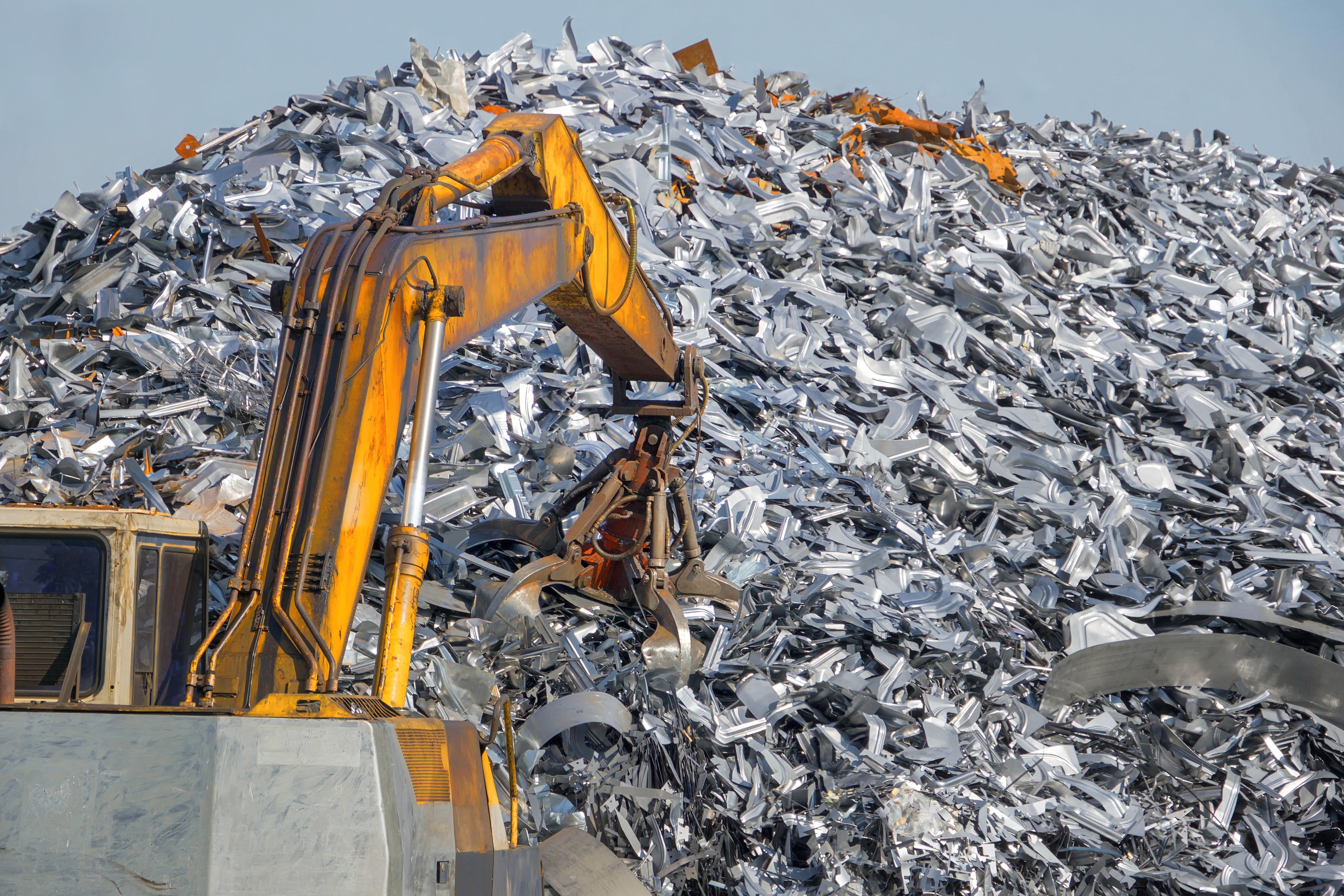

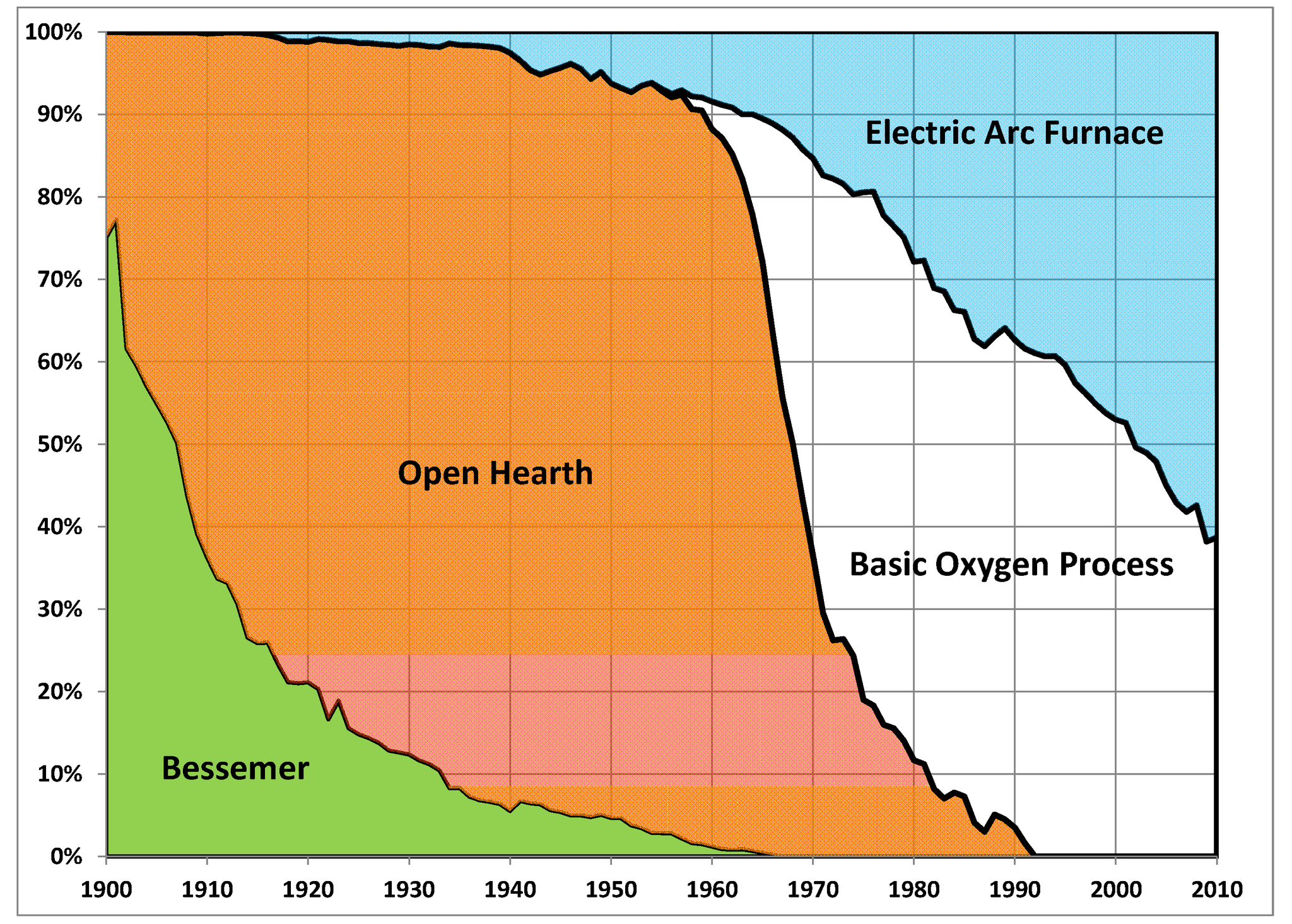
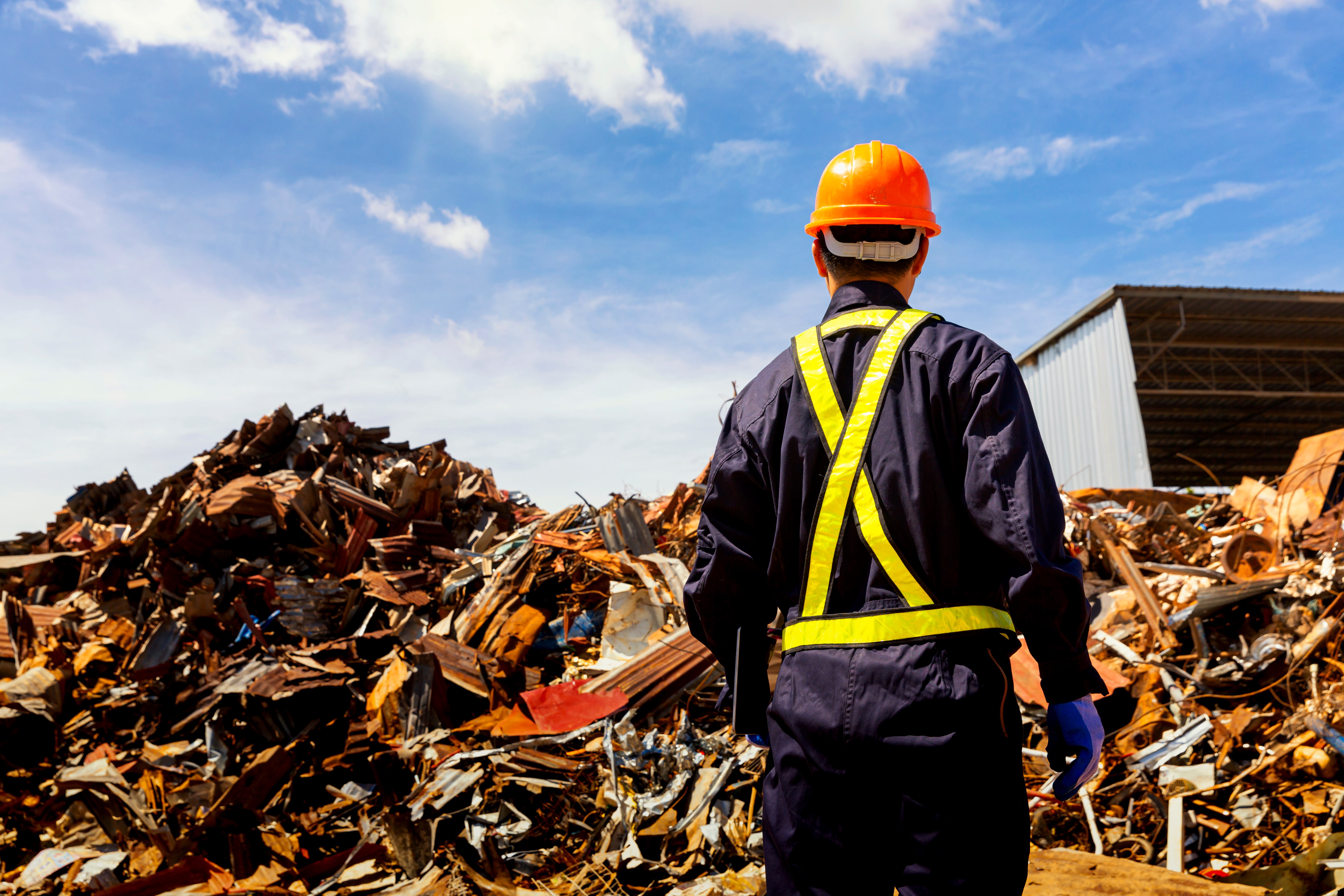
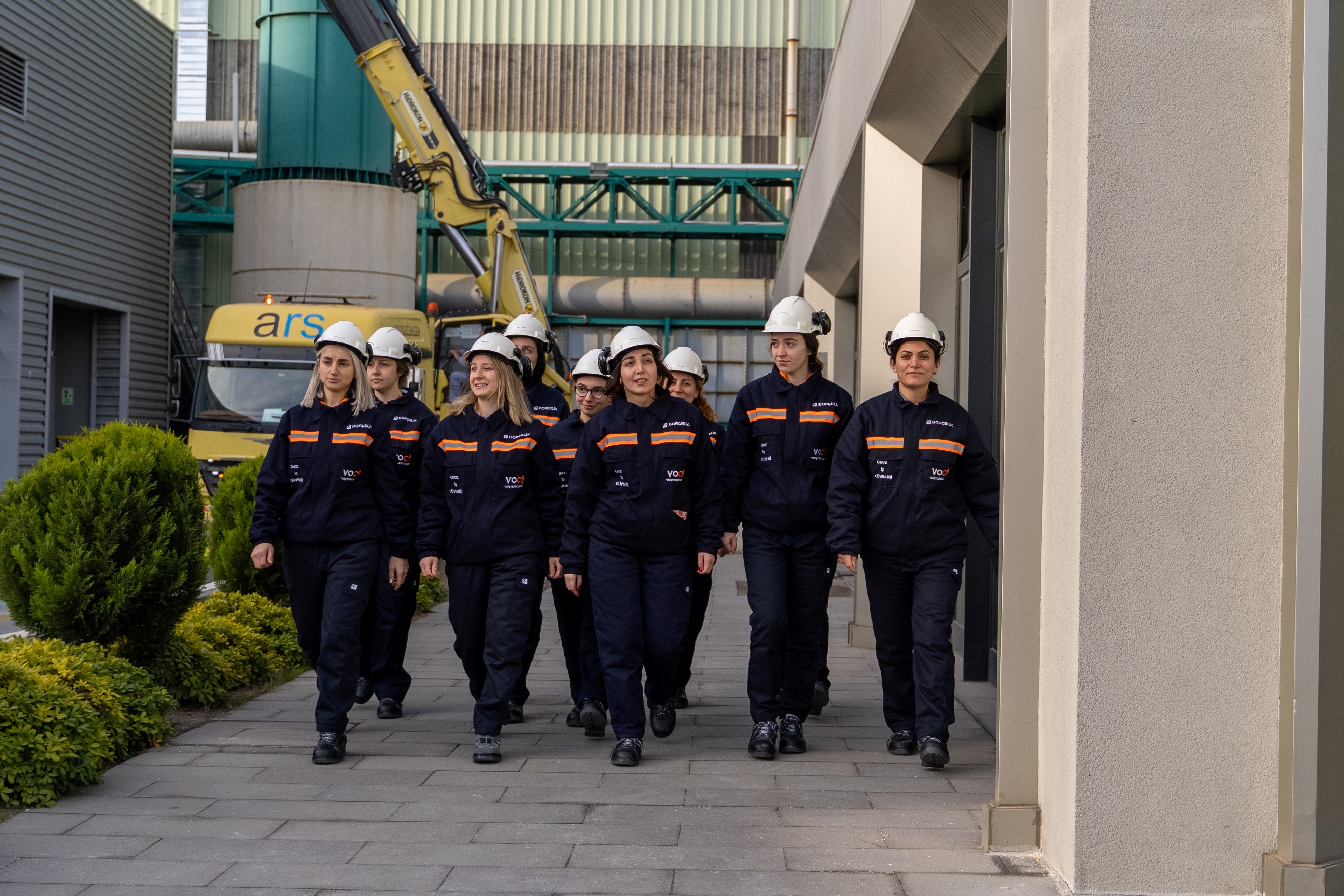
.png)





